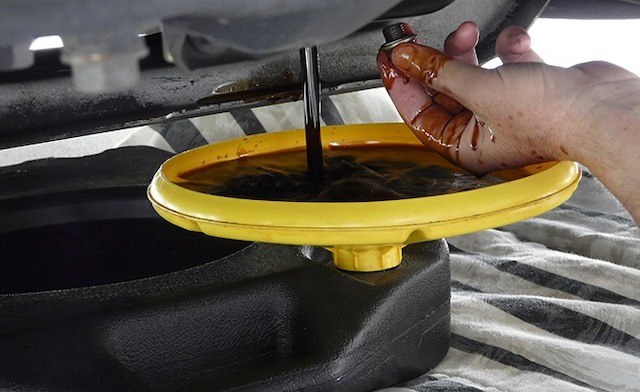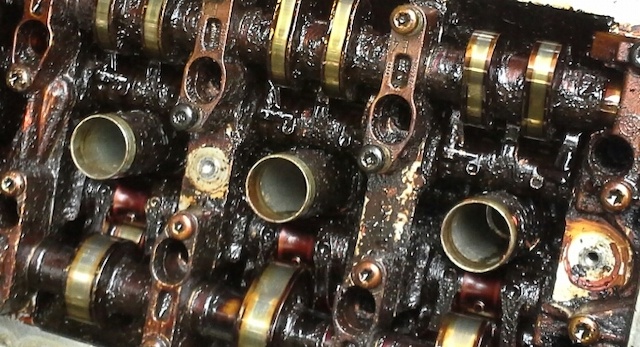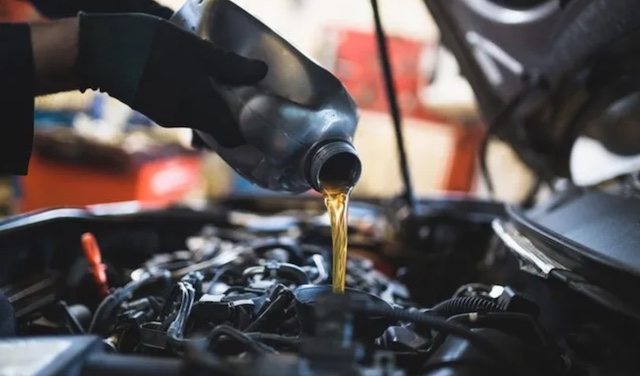What Happens When You Wait Too Long To Change The Oil

Motor oil doesn’t last forever. That’s why you should change it every now and then. Vehicle manufacturers always provide specific oil change intervals. For example:
- If you have a passenger vehicle, change the oil every 3,000-7,500 miles. The frequency depends on the type of oil you use (conventional oil or a synthetic blend).
- If you have a motorcycle, change the oil every 3,000 – 7,500 miles.
- If you have an ATV, change the oil after every 100 hours of use.
- If you have a snowmobile, change the oil every 2,500 miles, or before every season.
It’s important to follow your vehicle manufacturer’s oil change recommendations. If you wait too long to change the oil, you’ll run into a variety of problems.
Old Oil Turns Into Dirty Sludge And That’s A Big Problem

There’s a reason motor oil can only last so long in your engine. As motor oil circulates through an engine, it picks up dirt and debris along the way. Over time, the dirt and debris builds up in the oil, making the oil gain too much viscosity. In other words, it turns into dirty sludge.
This renders the motor oil unable to properly lubricate the engine. Motor oil needs to be thin and slippery enough to lubricate everything within an engine. The motor oil also loses its additives that help keep the engine clean and running well. Motor oil doesn’t only lubricate the engine. It also helps cool the engine by absorbing some of the heat and transferring it elsewhere. In fact, motor oil can cool an engine by up to 40%.
So in a nutshell, dirty and sludgy oil:
- Can no longer lubricate the engine
- Can no longer cool the engine
- Loses most of its additives, which impacts the engine’s health
So what happens when your engine is running on dirty and sludgy oil that’s essentially useless? A variety of serious engine problems.
1. Metal-To-Metal Contact
When the motor oil fails to lubricate the engine, metal-to-metal contact happens. It happens between many different parts within the engine. Prolonged metal-to-metal contact is basically a death sentence for the engine. It’ll go through a host of problems before finally seizing or blowing up. You’ll encounter a variety of serious engine problems before your engine fails, such as:
- Excess oil consumption
- Loss of compression
- Fouling of spark plugs and O2 sensors
Unfortunately, if you notice these problems, chances are good your engine is already beyond the point of repair. To say that your engine needs motor oil to keep working is an understatement.
2. Overheating Engine
Another big problem that kills the engine is overheating. When the motor oil becomes too dirty, it doesn’t lubricate as well. A poorly lubricated engine has more friction, so it runs hotter. When an engine consistently runs too hot, it is at risk of:
- Blowing a head gasket
- Warping or cracking a head or block
- Seizing
3. Clogged Oil Filter
Dirty oil clogs up the oil filter faster. This deprives the engine of oil. When it gets bad enough, oil pressure drops, and moving parts aren’t lubricated as well as they should be.
Your Vehicle’s Warranty Can Get Voided

Many vehicle warranties require that you must maintain your vehicle based on the manufacturer’s recommended schedule. If you fail to do that, the manufacturer can void your vehicle’s warranty. That means you’d be stuck paying for major repairs, or a new engine, out of pocket.
Prevention Is Much Better Than A Cure
It is far, far less expensive to change the oil on a regular basis than to repair any of the problems that arise when the oil breaks down.
